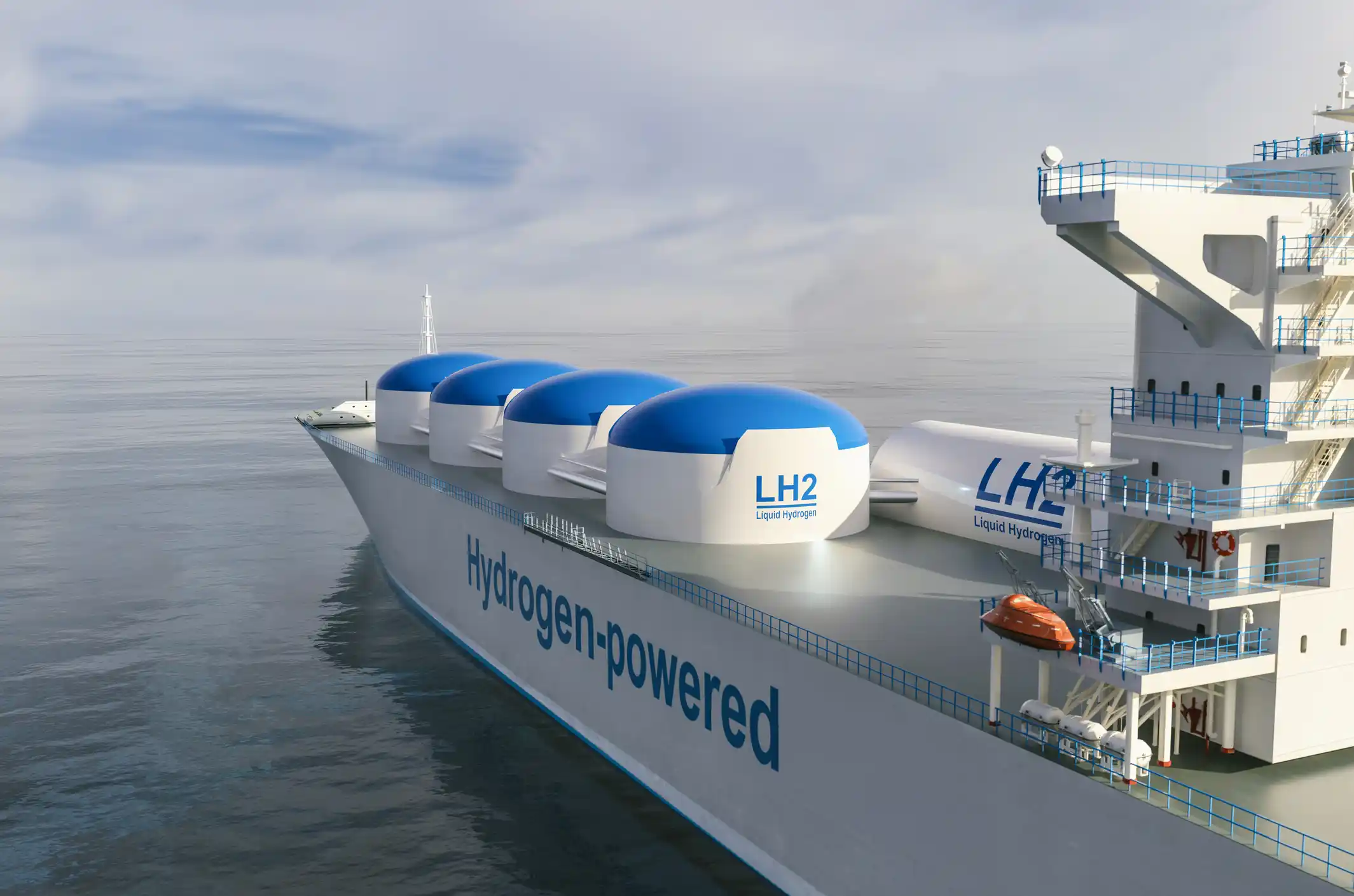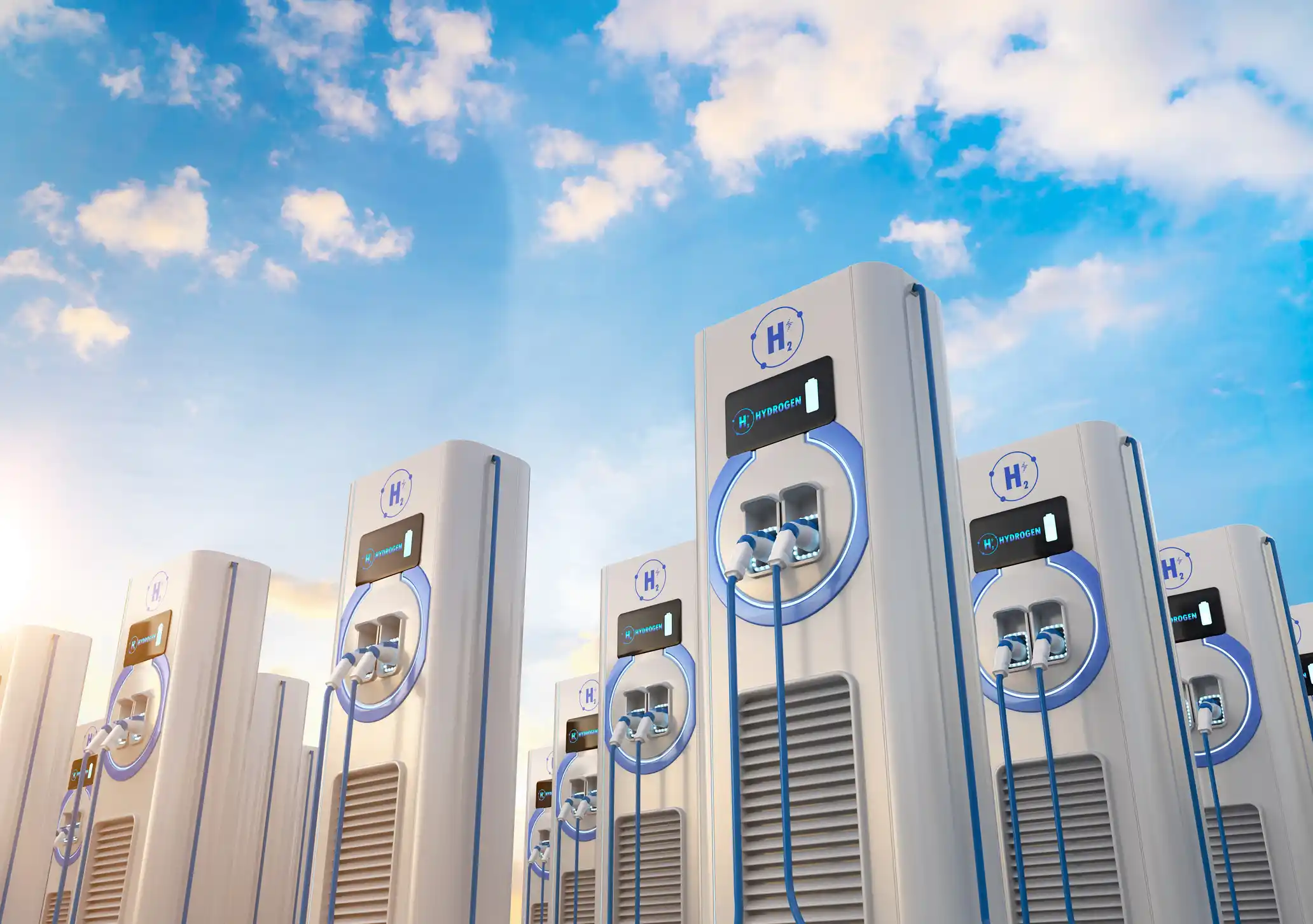Demystifying hydrogen
Get to grips with how hydrogen, and the skills related to it, create opportunities to help businesses improve efficiency, reduce costs and meet growing market demand in engineering and manufacturing.

The importance of hydrogen
Hydrogen is emerging as a pivotal element in the UK’s engineering and manufacturing sectors as the country strives to achieve its net-zero emissions target by 2050. The UK government has recognised hydrogen as a key component of its energy transition, investing heavily in hydrogen technologies and infrastructure, and estimating that by 2050 hydrogen could provide 20-35% of the UK’s energy. This has spurred innovation across various sectors, from automotive to heavy industry, where hydrogen is being explored as a clean alternative to fossil fuels.
As hydrogen technology advances and government support continues, the UK is positioning itself as a leader in the global hydrogen economy, offering significant opportunities for growth and innovation in engineering and manufacturing.

Hydrogen explained
Hydrogen has the potential to significantly impact small and medium-sized enterprises (SMEs) in engineering and manufacturing. These impacts are expected to vary depending on the specific industry, the stage of hydrogen adoption, and the region. While green hydrogen, produced through electrolysis, is seen as a key component of the energy transition due to its zero carbon emissions when burned, the industry has encountered setbacks.

Benefits of hydrogen
Decarbonisation
Energy storage and flexibility
Industrial process efficiency
Energy security and independence
Innovation and economic growth
Sustainability and corporate responsibility
Hydrogen and Industry 4.0
Hydrogen aligns with Industry 4.0 in several ways, enhancing the digital transformation of manufacturing and industrial processes while contributing to sustainability and efficiency goals.

Hydrogen and sustainability
Hydrogen in engineering and manufacturing aligns with sustainability principles by reducing environmental impact, promoting resource efficiency, supporting economic growth, enhancing social well-being, fostering innovation, and building resilience against climate change.

Hydrogen resources

Hydrogen Energy Association: The UK Hydrogen Map (UKAEA)
The Hydrogen Energy Association brings together representatives from the entire UK hydrogen value chain. Its free-to-access UK & Northern Ireland Hydrogen Projects Map showcases pioneering projects.
Read more
Hydrogen Innovation Initiative: Hydrogen technology roadmap
HII is a trusted group of organisations bringing together key stakeholders to create a competitive hydrogen technology sector in the UK. This report provides an overview of cross-cutting hydrogen technology roadmaps.
Read more
Green Jobs Delivery Group – Hydrogen Task and Finish Group
This report is an executive summary of the Hydrogen Skills Workforce Assessment undertaken by the Hydrogen Skills Alliance, on behalf of the Green Jobs Delivery Group Task and Finish Group.
Read more
High Value Manufacturing Catapult (HVMC)
Led by the Catapult Network (including HVMC) and other top technology centres, the Hydrogen Innovation Initiative will help to create a new connected innovation ecosystem for accelerating the hydrogen economy.
Read more
Hydrogen Energy Association: Hydrogen Bytes
Hydrogen Bytes is the HEA’s series of lunchtime webinars, 30-minute ‘Bytes’ unravelling the hydrogen opportunity. These short sessions each focus on an aspect of the hydrogen economy.
Read more
Manufacturing Technology Centre (MTC)
Whether you’re advancing hydrogen production, pioneering better storage and transportation, or optimising usage, the MTC’s specialists are supporting organisations across the UK to build the future of hydrogen.
Read more
Hydrogen UK
Hydrogen UK is the UK’s leading trade association supporting organisations across the entire value chain, to develop, scale up and deploy hydrogen solutions.
Read more
Regen
Regen provides independent, evidence-led insight and advice in support of our mission to transform the UK’s energy system for a net zero future.
Read moreShape the Future Skills Hub with us
Your expertise and insights are invaluable. If you have content, resources, or feedback to enhance the Future Skills Hub, we want to hear from you! Let’s collaborate and shape the future of engineering and manufacturing.
Get in touch